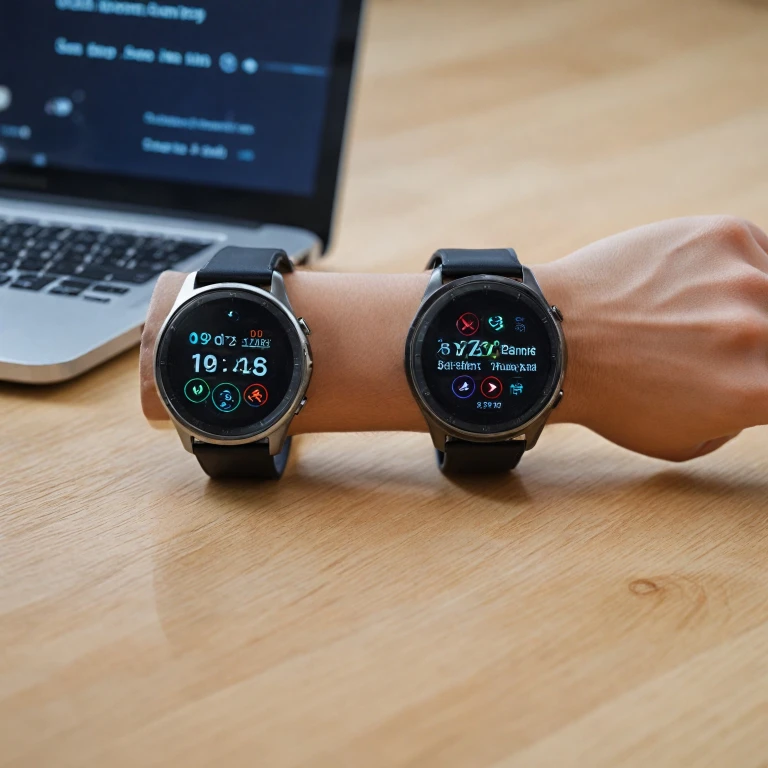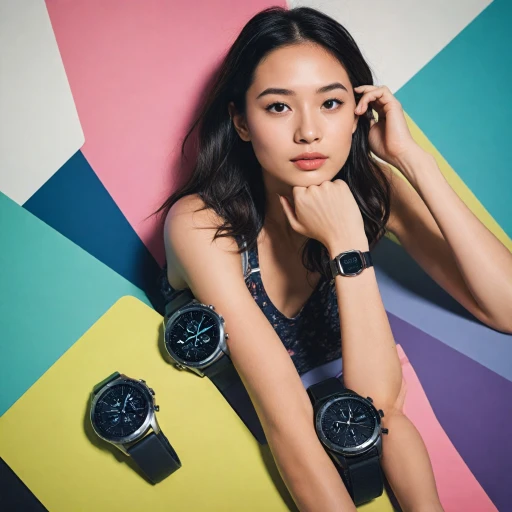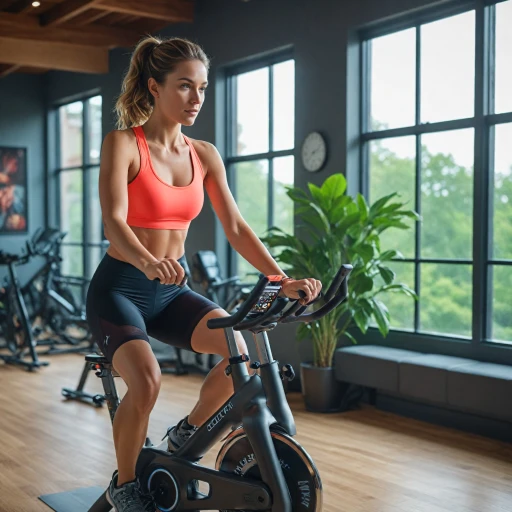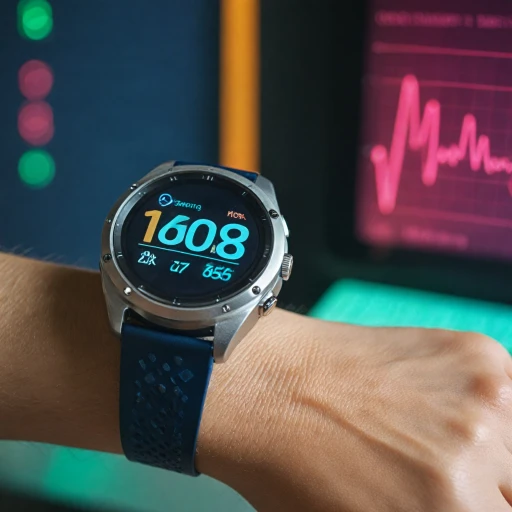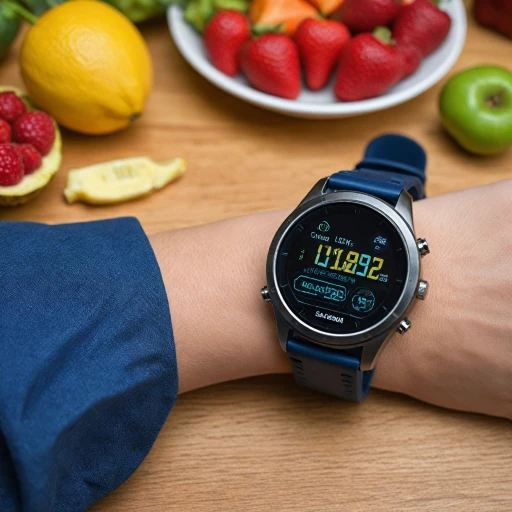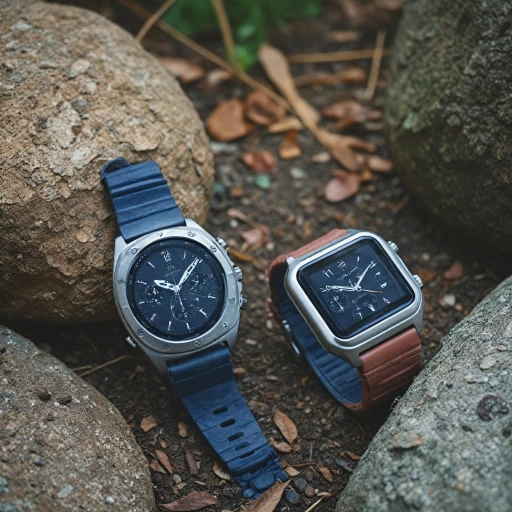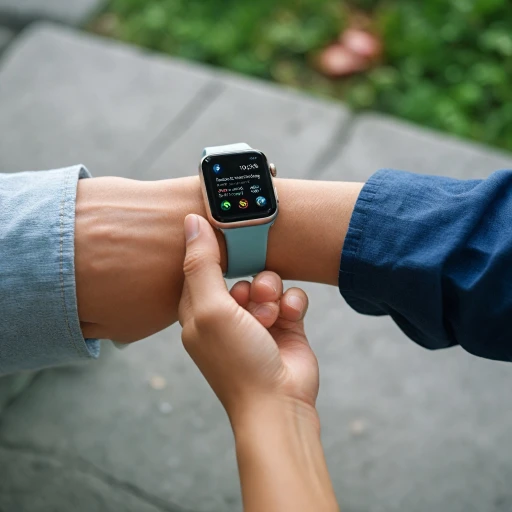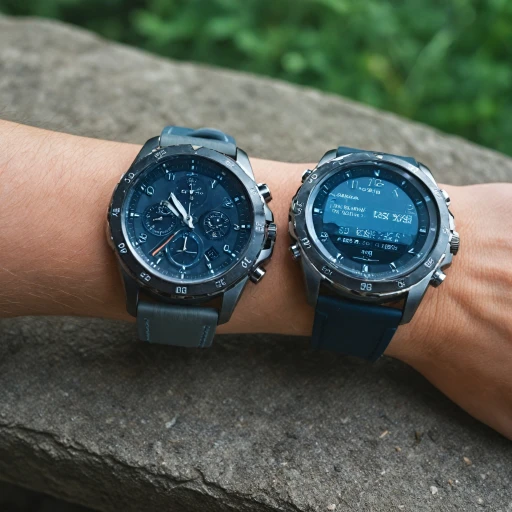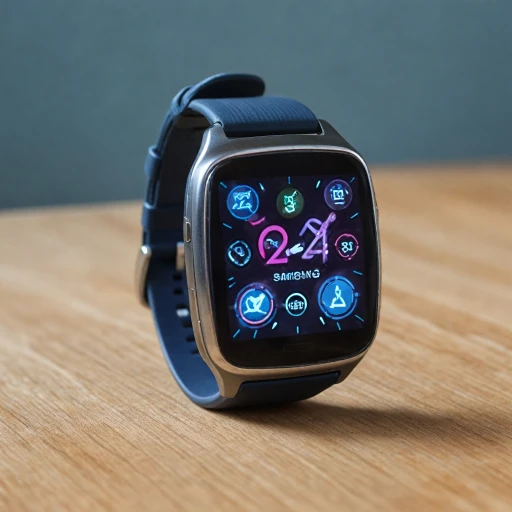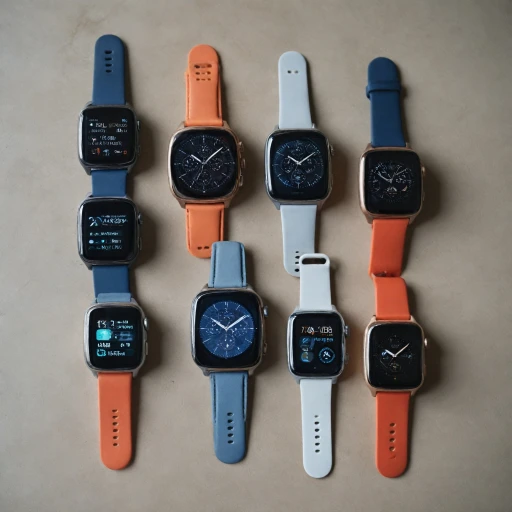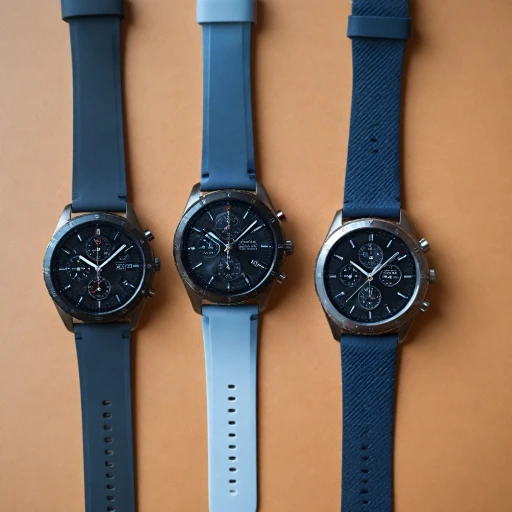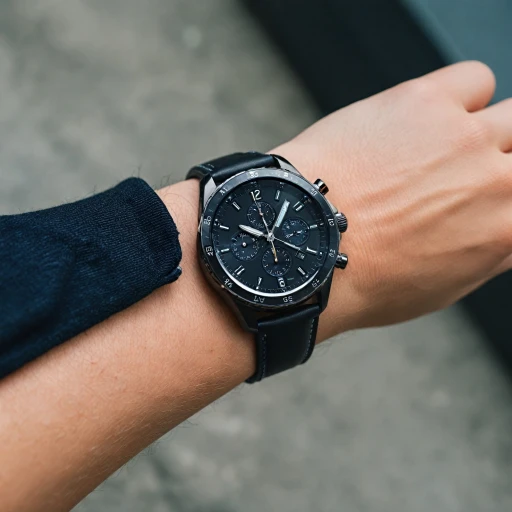
Understanding Health Monitoring Features
Key Health Monitoring Elements
When searching for the best health monitoring smartwatch, it's essential to understand what features will truly benefit your fitness and wellness journey. Contemporary smartwatches and fitness trackers have evolved significantly, bringing various functions to the wrist, which were once considered groundbreaking.- Heart Rate Monitoring: This is often at the core of health-focused smartwatches. Devices like the Apple Watch series and Samsung Galaxy Watch offer real-time heart rate tracking, useful for monitoring overall heart health. Frequent heart rate tracking during workouts can provide insights into cardiovascular fitness and recovery.
- Sleep Tracking: Quality sleep is crucial for overall health. Smart devices including the Whoop and Oura Ring have been recognized for their sleep tracking accuracy. They assess sleep stages and offer insights into sleep quality, which can be pivotal in improving one's health and day-to-day energy.
- Blood Pressure and Oxygen Monitoring: Brands like Amazfit and some iterations of the Galaxy Watch offer blood pressure monitoring and blood oxygen (SpO2) measurement. Blood oxygen level monitoring can provide insights into how well one's respiratory system is functioning, which is particularly important for those involved in high-intensity sports. For a deeper understanding of the features offered by these smartwatches, explore finding the ideal smartwatch for blood pressure monitoring.
- Fitness Tracking: Look for devices with comprehensive fitness tracking capabilities, whether it's a smartwatch or a smart ring. Fitness trackers often provide detailed data on steps, distance, calories burned, and specific sport modes.
- Battery Life and Water Resistance: Battery life can vary greatly, from the day-long life of the Apple Watch to longer durations offered by rings like the Oura Ring. Likewise, water resistance is an important factor for swimmers or those engaging in water-based activities, ensuring device durability during such activities.
Comparing Top Brands and Models
Exploring Leading Brands and Their Offerings
When it comes to health monitoring smartwatches, several brands stand out for their innovation and reliability. Each brand offers unique features that cater to different needs, making it essential to compare them to find the best fit for your lifestyle.
Apple Watch Series
The Apple Watch Series is renowned for its comprehensive health tracking capabilities. It offers features like heart rate monitoring, sleep tracking, and even blood oxygen measurement. With its seamless integration with iOS devices, it provides a user-friendly experience. The regular price might be on the higher side, but the functionality and design often justify the cost.
Samsung Galaxy Watch
The Samsung Galaxy Watch is another strong contender, especially for Android users. It boasts features like water resistance, blood pressure monitoring, and a long battery life. Its fitness tracker capabilities are robust, making it a great choice for those focused on fitness and health.
Oura Ring and Smart Rings
For those interested in a more discreet option, the Oura Ring and other smart rings like the Helio Ring offer excellent health tracking features. These devices focus on sleep tracking, heart rate monitoring, and overall wellness. They are perfect for individuals who prefer not to wear a traditional watch.
Whoop and Fitness Trackers
The Whoop fitness tracker is designed for athletes and fitness enthusiasts. It provides in-depth analysis of your workout performance, recovery, and sleep patterns. While it may not have a display like traditional watches, its detailed tracking capabilities make it a popular choice among fitness buffs.
Amazfit and Budget-Friendly Options
For those seeking a more budget-friendly option, Amazfit offers a range of smartwatches that balance price and features effectively. They provide essential health tracking features, decent battery life, and are often available at a sale price, making them accessible to a wider audience.
For more insights on choosing the right smartwatch, consider understanding the benefits of a watch equipped with fall detection.
Evaluating Accuracy and Reliability
Accuracy and Reliability: Key Factors for Health Monitoring
Finding a smartwatch with precise and reliable health monitoring is crucial for any potential buyer aiming to track fitness and overall well-being. Various factors come into play when evaluating the accuracy and reliability of these devices. Modern smartwatches and fitness trackers often include sensors for measuring heart rate, sleep patterns, blood oxygen levels, and more. Brands like Apple Watch, Samsung Galaxy, and Whoop are renowned for offering some of the best options on the market. The accuracy of these metrics can vary significantly between models, even though many fitness trackers are equipped with advanced features. For example, the heart rate sensor in a Galaxy Watch or the blood oxygen monitor in an Apple Watch might deliver varying levels of precision depending on the device version and price range. Battery life also plays a role in determining how consistently these devices track health data over time. While some users prefer the life days of a fitness tracker like Amazfit, others opt for the robust features of an Apple Watch series, despite its higher price tag. Additionally, wearables like the Oura Ring and Helio Ring have introduced smart rings that focus on sleep tracking and fitness metrics with their unique design, providing an alternative to traditional wrist-based watch wearables. When evaluating these devices, it's important to review user ratings and expert opinions on how accurately these devices monitor blood pressure and sleep, among other parameters. Furthermore, considering water resistance levels might affect reliability in different environments or activities. For those considering an Apple Watch, exploring the nuances between models such as the Apple Watch Ultra and Ultra 2 can offer insights into which version aligns better with their tracking needs. You can find a detailed comparison by clicking here. Ultimately, balancing price with features and accuracy ensures a satisfying experience for users aiming to leverage their smartwatch as a comprehensive health tool. This careful evaluation can significantly impact the overall satisfaction and health benefits derived from these devices. Remember to prioritize features that align with personal health and fitness goals to optimize the value gained from your smartwatch investment.User Experience and Interface
Navigating User Experience and Interface Dynamics
When it comes to finding the ideal health-monitoring smartwatch, the user experience and interface emerge as pivotal factors. The way a watch's interface is designed can significantly impact your daily interactions and overall satisfaction.- Intuitive Navigation: Many devices, such as the latest Apple Watch series and Samsung Galaxy watch, strive for a seamless user interface. These watches often incorporate touchscreen functionality, allowing users to swiftly swipe through apps and notifications. However, fitness trackers like the Amazfit may rely on physical buttons for navigation, appealing to users who prefer tactile controls.
- Customizable Settings: Look for a smartwatch or fitness tracker that allows customization according to your preferences. Some models enable you to modify watch faces, configure alerts for fitness goals, and adjust settings for water resistance and sleep tracking.
- Display Quality: A vivid and responsive display is essential, especially if you frequently engage in outdoor activities. Devices with AMOLED displays, such as some Galaxy Watch models, often boast excellent visibility under direct sunlight. This feature complements health monitoring, enabling clear and quick access to statistics like heart rate and blood oxygen levels.
- Battery Life Considerations: Battery life greatly influences user satisfaction. Products such as the Oura Ring and Whoop tracker emphasize extended battery life and rapid charging. Consider how often you want to charge your device in relation to its functionalities and tracking capabilities.
- Interactivity with Health Apps: The ability to sync with health apps like Helio Ring or Apple Health is crucial for those tracking comprehensive fitness data. Smart rings and fitness trackers that ensure smooth integration can enhance health management, offering insights into VO2 max, heart rate, sleep, and daily activity.
Integration with Health Apps
Connecting Your Smartwatch to Health Apps
The ability to integrate your smartwatch with various health apps is a crucial aspect to consider when choosing the best fitness tracker. This integration enhances the overall user experience by allowing seamless data transfer and a comprehensive view of your fitness journey, including heart rate and sleep tracking. Many top brands, such as the Apple Watch and Samsung Galaxy Watch series, offer robust app ecosystems. This integration with health apps can significantly improve your fitness tracking experience by collecting and analyzing data from different sources. For instance, linking your smartwatch to apps that specialize in blood oxygen and blood pressure monitoring can provide deeper insights into your cardiovascular health.Seamless Syncing Across Devices
Smartwatches and smart rings, like the Oura Ring and Whoop, are renowned for their ability to sync data across multiple platforms, ensuring that users have access to their metrics anytime, anywhere. Whether you prefer using a fitness tracker app on your smartphone or tablet, a seamless experience is paramount. Additionally, syncing extends the usability of your device beyond fitness, enabling smart integrations such as calendar reminders or life-hack applications. This functionality is not just limited to fitness trackers but is also prevalent in smart rings and other advanced devices like the Amazfit Helio Ring.Choosing Apps That Complement Features
Choosing the right apps that complement your smartwatch’s features is akin to optimizing your purchase's value. For example, if sleep tracking is a primary concern, selecting an app that excels in analyzing your sleep patterns can greatly enhance the sleep data accuracy you receive. For those who prioritize long battery life and heart rate monitoring, finding an app that balances these features while consuming minimal resources on your device is key. Some watches, such as Galaxy Watch, offer apps tailored for improved battery life and advanced heart monitoring, ensuring that your fitness tracker supports you throughout the day.Weighing Price Against App Compatibility
As discussed earlier, evaluating the regular price, sale price, and the best features a device offers is essential. However, app compatibility should also be a consideration when weighing price versus features. Investing in a device that has superior integration capabilities with fitness apps, available at an attractive price, boosts the utility and satisfaction of your purchase. For a comprehensive understanding of different models and their integration capabilities, exploring reputable sources online can guide you in making an informed decision. Understanding the intricacies of how health and fitness apps interface with your smartwatch will ensure you’re getting the most out of your investment.Price vs. Features: Making the Right Choice
Balancing Cost with Features
When choosing a health monitoring smartwatch, it's essential to assess your budget alongside the benefits you expect to gain. Smartwatches and fitness trackers vary significantly in terms of price and features, making it crucial to understand what you're paying for.
Starting with the basics, fitness trackers like the Amazfit and Oura Ring offer essential health metrics such as heart rate and sleep tracking at a more accessible price point. Their battery life is often commendable, lasting several days on a single charge.
The Samsung Galaxy Watch and Apple Watch series provide more comprehensive features, including advanced blood pressure and blood oxygen monitoring. These devices integrate seamlessly with other smart devices and health apps, offering a complete fitness tracking ecosystem. However, these benefits come at a higher regular price, with opportunities to avail sale prices around shopping events.
Consider the Whoop band if you're focused on fitness and performance analytics. While it requires a membership for full features, its detailed insights into sleep and recovery make it a popular choice among athletes.
Finally, smart rings like the Helio Ring offer discreet health tracking in sleek form factors, catering to those who prefer minimalistic trackers. The trade-off is often a smaller screen and limited interface compared to smart watches.
Ultimately, the best choice depends on the balance you seek between a device's integrations, battery longevity, and the specific health metrics you value most. Evaluating these factors will guide you to the smartwatch that aligns with your lifestyle and health goals.

